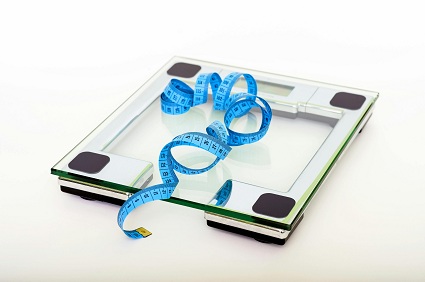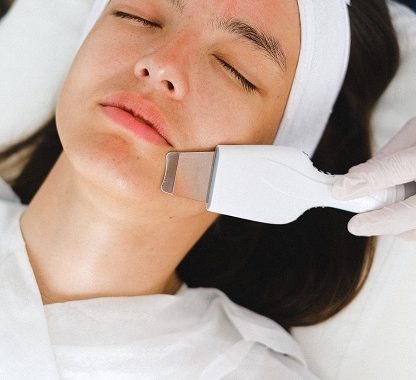
Embarking on a journey towards clearer skin involves more than just topical treatments; it requires a holistic approach that includes a well-balanced and acne-free diet plan. In this comprehensive guide, we’ll explore the connection between your diet and acne, providing insights into effective dietary changes that can help you achieve clearer skin within 30 days.
Acne-Free Diet Plan: 30 Days to Clearer Skin
-
Understanding the Link between Diet and Acne:
To achieve clearer skin, grasping the intricacies of the diet-acne connection is paramount. Numerous studies highlight the impact of specific foods on acne, with some acting as triggers and others as protective agents.
Certain foods, often high in refined sugars and dairy, have been linked to increased acne breakouts. Conversely, incorporating a diet rich in antioxidants, omega-3 fatty acids, and low-glycemic foods can mitigate acne severity.
This knowledge forms the foundation of a targeted acne prevention diet, empowering individuals to make informed dietary choices for visibly healthier skin in as little as 30 days.
-
The 30-Day Challenge:
Embarking on the 30-Day Challenge involves a strategic overhaul of your dietary habits to combat acne effectively. This structured acne-free diet plan is meticulously designed to bring noticeable improvements to your skin within the stipulated timeframe.
The emphasis lies on eliminating trigger foods known to exacerbate acne, such as high-glycemic and inflammatory options. Simultaneously, the plan encourages the incorporation of skin-friendly alternatives rich in antioxidants, vitamins, and minerals.
By committing to this comprehensive approach, you set the foundation for clearer, healthier skin in just 30 days, providing a tangible and achievable goal for those seeking a rapid transformation in their skincare journey.
-
Diet to Get Rid of Acne in a Week:
In the quest for clearer skin, a week-long dietary intervention can yield noticeable improvements. Focus on reducing high-glycemic foods, such as processed sugars and refined carbs, known to spike insulin levels and contribute to acne.
Prioritize water intake to flush out toxins and promote skin hydration. Incorporate antioxidant-rich foods like berries and leafy greens, as they combat inflammation and support skin health. Embrace omega-3 fatty acids found in fish, flaxseeds, and walnuts, known for their anti-inflammatory properties.
By adopting these quick and effective dietary changes, you kickstart your journey to acne-free skin within a week, providing a tangible and motivating start to your comprehensive skincare routine.
Best acne scar removal products
-
Teenage Anti-Acne Diet:
Adolescence is a time of significant hormonal fluctuations, making teenagers particularly susceptible to acne breakouts. Crafting a specialized Teenage Anti-Acne Diet becomes crucial in addressing these hormonal changes and promoting clearer skin.
The diet focuses on incorporating foods that aid in hormonal balance and skin health. Essential nutrients such as vitamin A, vitamin E, and omega-3 fatty acids play a pivotal role in reducing inflammation and supporting skin regeneration.
Teenagers are encouraged to include a variety of colorful fruits and vegetables rich in antioxidants to combat free radicals that contribute to acne.
Lean proteins like chicken, fish, and legumes provide the necessary amino acids for collagen production, fostering skin elasticity and resilience.
Whole grains and complex carbohydrates with a low glycemic index help stabilize blood sugar levels, minimizing hormonal fluctuations linked to acne.
Moreover, hydration is emphasized as a fundamental aspect of the Teenage Anti-Acne Diet, promoting the elimination of toxins from the body. Green tea, known for its antioxidant and anti-inflammatory properties, can be included as a refreshing and beneficial beverage.
By understanding the unique challenges teenagers face in combating acne, this tailored diet empowers adolescents to make informed food choices.
Implementing these dietary adjustments not only contributes to clearer skin but also instills healthy eating habits that can benefit them well beyond their teenage years.
Best acne scar removal products
5.Hormonal Acne Diet Plan:
Hormonal imbalances play a significant role in the development of acne, affecting individuals of various ages. To counteract the impact of hormonal fluctuations on the skin, adopting a specialized Hormonal Acne Diet Plan becomes crucial.
This strategic dietary approach focuses on specific foods that help balance hormones, consequently reducing the occurrence and severity of hormonal acne.
The Hormonal Acne Diet Plan incorporates foods rich in antioxidants, omega-3 fatty acids, and vitamins that actively work to regulate hormonal levels.
Essential nutrients like zinc and vitamin A play pivotal roles in supporting hormonal balance, and their inclusion in the diet aids in controlling sebum production, a major contributor to acne development.
Additionally, the plan emphasizes the consumption of whole foods, such as fruits, vegetables, and lean proteins, while minimizing the intake of processed and high-sugar foods.
By steering clear of potential hormone-disrupting substances found in certain processed foods, individuals can contribute to a more stable hormonal environment within the body.
Overall, the Hormonal Acne Diet Plan is a targeted and holistic approach that not only addresses the symptoms but also targets the root cause of hormonal acne. Incorporating this plan into your lifestyle can lead to clearer, healthier skin by harmonizing hormonal levels and mitigating the impact of hormonal imbalances on acne development.
Best acne scar removal products
�
6.Worst Foods for Acne:
In the pursuit of clearer and healthier skin, recognizing and steering clear of the worst foods for acne is a crucial step in any effective acne prevention plan.
Certain foods have been identified as potential triggers for acne breakouts, exacerbating skin conditions and hindering the quest for a blemish-free complexion.
High-glycemic foods, such as refined carbohydrates and sugary snacks, can lead to elevated insulin levels, triggering inflammation and contributing to acne formation.
Additionally, dairy products, particularly those high in hormones, have been associated with increased acne prevalence. Understanding and eliminating these culprits is paramount for individuals seeking to optimize their skin health.
By incorporating a diet rich in anti-inflammatory foods, such as fruits, vegetables, and omega-3 fatty acids, individuals can actively counteract the inflammatory response associated with acne.
Educating oneself about the worst foods for acne empowers individuals to make informed dietary choices. This proactive approach involves learning to read food labels, identifying hidden triggers, and adopting a mindful and intentional eating habit.
Through this process, individuals can create a personalized and sustainable dietary plan that supports clearer, healthier skin, marking a significant stride towards achieving a complexion free from the constraints of acne.
Best acne scar removal products
�
-
Low Glycemic Diet for Acne:
A Low Glycemic Diet for Acne: Recent studies have unveiled a compelling link between high-glycemic foods and the development of acne.
The glycemic index (GI) measures how quickly a particular food raises blood sugar levels. Foods with a high GI, such as refined carbohydrates and sugary snacks, have been associated with an increased risk of acne breakouts.
Adopting a low-glycemic diet involves choosing foods that have a slower impact on blood sugar levels, promoting a more stable insulin response.
The benefits of a low-glycemic diet extend beyond weight management and diabetes prevention; it plays a pivotal role in achieving clearer skin.
By opting for whole grains, legumes, and non-starchy vegetables, individuals can mitigate blood sugar spikes, subsequently reducing the risk of acne flare-ups.
Stabilizing blood sugar levels is crucial in preventing the overproduction of sebum, a primary contributor to clogged pores and acne development.
Moreover, a low-glycemic diet helps regulate hormone levels, particularly insulin, which can impact androgen production—a hormone associated with increased sebum production.
By embracing this dietary approach, individuals not only address the external symptoms of acne but also target the root causes. The result is a comprehensive strategy that promotes both skin health and overall well-being.
Make informed food choices to support a low-glycemic diet, and witness the transformative impact on your skin within a short timeframe.
Best acne scar removal products
�
-
Hormonal Acne Diet Plan PDF:
The Hormonal Acne Diet Plan PDF serves as a user-friendly and accessible resource, offering a detailed roadmap for individuals seeking to combat hormonal acne effectively.
This downloadable document streamlines the process of implementing a comprehensive dietary plan tailored specifically to balance hormones and promote clearer skin.
The PDF provides a structured guide, breaking down the essential dietary changes necessary for hormonal balance and acne prevention.
Inside the document, users will find a carefully curated selection of hormone-stabilizing foods, along with clear instructions on incorporating these into their daily meals.
Additionally, the PDF outlines foods to avoid, helping users steer clear of potential triggers that could exacerbate hormonal imbalances and contribute to acne breakouts.
The interactive nature of the PDF allows users to track their progress, making it a personalized and adaptable tool for individuals with varying dietary preferences and lifestyles.
Whether you’re a busy professional or a student with a hectic schedule, the Hormonal Acne Diet Plan PDF caters to your convenience, ensuring that achieving clearer skin is both feasible and sustainable.
By offering a downloadable resource, our aim is to empower individuals with the knowledge and tools necessary to take control of their hormonal health.
This PDF not only educates users on the science behind hormonal acne but also provides practical solutions, making the journey towards clearer skin an achievable and well-supported endeavor.
Best acne scar removal products
�
-
Best Fruits for Acne:
In the quest for clearer skin, the choice of fruits plays a pivotal role in promoting skin health. Opting for fruits that are rich in antioxidants, vitamins, and minerals can significantly contribute to a healthier complexion.
Berries, such as blueberries, strawberries, and raspberries, stand out as powerful sources of antioxidants that combat free radicals, reducing inflammation and supporting overall skin health.
Citrus fruits like oranges, lemons, and grapefruits are packed with vitamin C, a vital nutrient known for its collagen-boosting properties. Collagen plays a key role in maintaining skin elasticity and preventing acne scars.
Additionally, the presence of vitamin A in fruits like mangoes and apricots promotes skin cell turnover, reducing the likelihood of clogged pores and acne development.
Bananas and avocados, rich in potassium and vitamin E, respectively, offer moisturizing benefits, preventing dry and flaky skin.
These fruits contribute to a well-hydrated complexion, an essential factor in acne prevention. Water-rich fruits like watermelon and cucumber not only keep the skin hydrated but also aid in flushing out toxins, promoting a clearer complexion.
Incorporating a variety of these nutrient-dense fruits into your daily diet can provide a holistic approach to acne prevention.
Remember, the key lies in the diversity of fruits, ensuring a broad spectrum of vitamins and minerals that collectively contribute to achieving and maintaining clearer, healthier skin.
Best acne scar removal products
Conclusion:
Embarking on a 30-day journey towards clearer skin through an acne prevention diet requires dedication and commitment.
By understanding the link between diet and acne, making strategic dietary adjustments, and following a specialized plan, you can pave the way for healthier and more radiant skin.
Take charge of your skin health today, and witness the transformative effects of a well-balanced, acne-free diet plan.
Further Reading:
CAN THE RIGHT DIET GET RID OF ACNE?
FAQs:
What foods help prevent acne?
Foods that help prevent acne include those rich in antioxidants, like berries and citrus fruits, which combat inflammation. Vitamin A-rich foods such as mangoes and apricots promote skin cell turnover, reducing clogged pores. Omega-3 fatty acids found in fish and flaxseeds help control excess oil production. Water-rich fruits like watermelon and cucumber keep the skin hydrated and aid in toxin removal. Leafy greens provide essential vitamins and minerals for overall skin health. Probiotic-rich foods like yogurt support a healthy gut, reducing inflammation associated with acne. Avoiding high-glycemic foods and dairy may also contribute to clearer skin.
�
What foods prevent acne prone skin?
Foods that prevent acne-prone skin include those rich in antioxidants, such as berries and leafy greens, which combat inflammation. Omega-3 fatty acids found in fish and flaxseeds help regulate oil production and reduce breakouts. Zinc-rich foods like nuts and whole grains promote healing and reduce inflammation. Incorporating vitamin A-rich options like sweet potatoes and carrots supports skin cell turnover. Probiotics from yogurt and fermented foods maintain a healthy gut, reducing acne triggers. Drinking plenty of water and choosing low-glycemic foods further contribute to preventing acne-prone skin. Avoiding dairy and minimizing processed sugars can also play a significant role in maintaining clear skin.
�
What foods should I avoid for clear skin?
For clear skin, avoid high-glycemic foods like sugary snacks and refined carbohydrates, as they may exacerbate acne. Dairy products, particularly full-fat milk, can contribute to skin issues, so consider alternatives. Steer clear of processed and fried foods, as they may trigger inflammation and breakouts. Excessive consumption of caffeine and alcohol can dehydrate the skin, leading to dullness and potential breakouts. Limit intake of foods high in saturated fats, opting for healthier fats found in avocados and nuts. Watch out for excessive salt intake, as it can contribute to skin inflammation. Finally, identify and avoid foods that personally trigger allergic reactions, as these can manifest as skin issues.
�
Can diet reduce hormonal acne?
Yes, adopting a balanced and healthy diet can help reduce hormonal acne. Certain foods, such as those rich in antioxidants, omega-3 fatty acids, and low-glycemic options, can regulate hormone levels and reduce inflammation. Avoiding high-glycemic foods and dairy may also contribute to hormonal balance and clearer skin. Consistent dietary changes, coupled with proper skincare, can play a significant role in managing and reducing hormonal acne over time.



